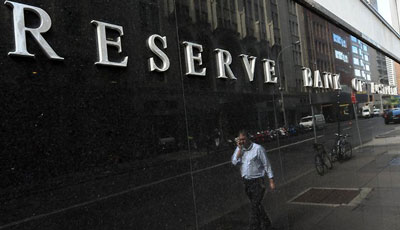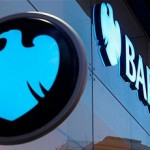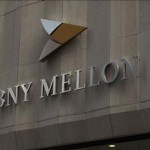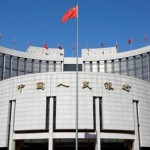Forex Probes Caused by Isolated Traders’ Misbehavior, Task Force Chief Says

A few individuals are responsible for a scandal that is costing banks billions
A few traders are responsible for the foreign-exchange scandal that is costing banks billions in fines, said the central banker assigned to help restore confidence in the market.
“The foreign-exchange probe was caused mostly by misbehavior” around a key benchmark, said Guy Debelle, assistant governor of the Reserve Bank of Australia and chairman of a group led by central banks established to devise an international code of conduct for the industry.
The way the WM/Reuters fix was set “was a long way from being the root of the problem,” he said in an interview on Tuesday. The WM/Reuters fix, the most widely used foreign-exchange benchmark, is set daily at 4 p.m. in London by a unit of U.S. bank State Street Corp. and has been at the center of a long-running investigation into traders’ alleged manipulation of foreign-exchange rates.
As part of that probe, four big banks are expected to plead guilty to antitrust charges that they rigged forex rates and agree to pay billions in penalties in the U.S. as early as next week, according to people familiar with the matter. The fines follow the $4.3 billion settlements among some of those banks and authorities in the U.S., Europe and Switzerland at the end of last year.
Mr. Debelle is leading a task force announced Monday by the Bank for International Settlements to define guidelines for behavior across the currencies industry. The task force’s recommendations will include rules on types of trading, such as stop losses, high-frequency trading and algorithmic trading, which Mr. Debelle said have shown suspicious patterns.
“It would make sense to make sure that those behaviors are specifically addressed,” he said.
One of the key challenges will be to find common ground on the “last look” practice, he said, which allows banks to change the prices at which they conduct trades after clients have agreed to them.
“There are differences of opinion on that,” Mr. Debelle said.
The group’s nonbinding recommendations, expected to be released in the next year, would apply to banks, asset managers and firms involved in the trading infrastructure for currencies.
‘There is clearly a very strong industry desire for coordinated alignment of the regional codes of conduct, encompassing all market participants’
—James Kemp, Global Financial Markets Association.
“Banks have wanted a single code for a long time,” he said. “They realize the need that something has to happen [to restore confidence],” he said.
The initiative has received early signs of support from the banking sector.
“There is clearly a very strong industry desire for coordinated alignment of the regional codes of conduct, encompassing all market participants,” said James Kemp, managing director of foreign exchange at the Global Financial Markets Association, which represents 24 banks active in the industry. “This is an opportunity for market participants to…put the right controls and guidance in place.”
A code of conduct should detail the extent to which information sharing is or isn’t allowed, said Benedict K. Cheng, managing consultant at forex-industry advisory GreySpark. “The behavior of the market participants should be the focus of any new industrywide code of conduct.”
Source: WSJ – Forex Probes Caused by Isolated Traders’ Misbehavior, Task Force Chief Says




























